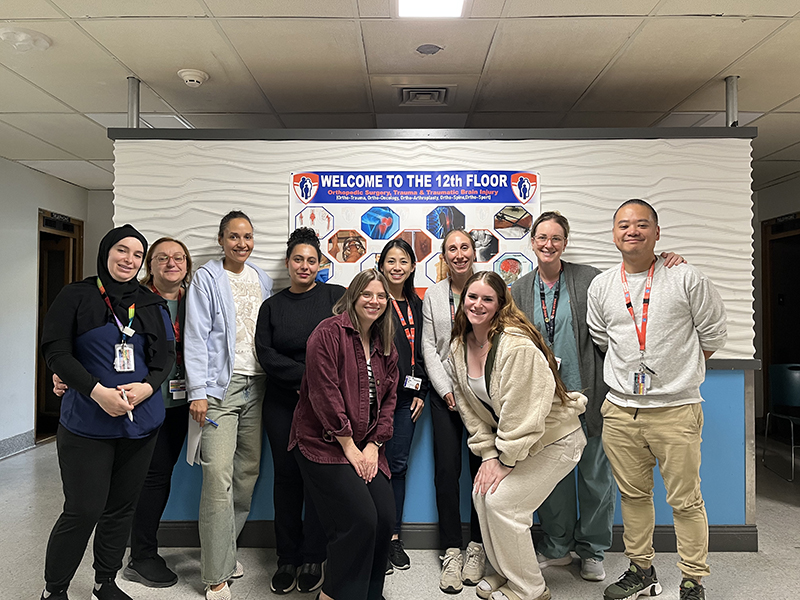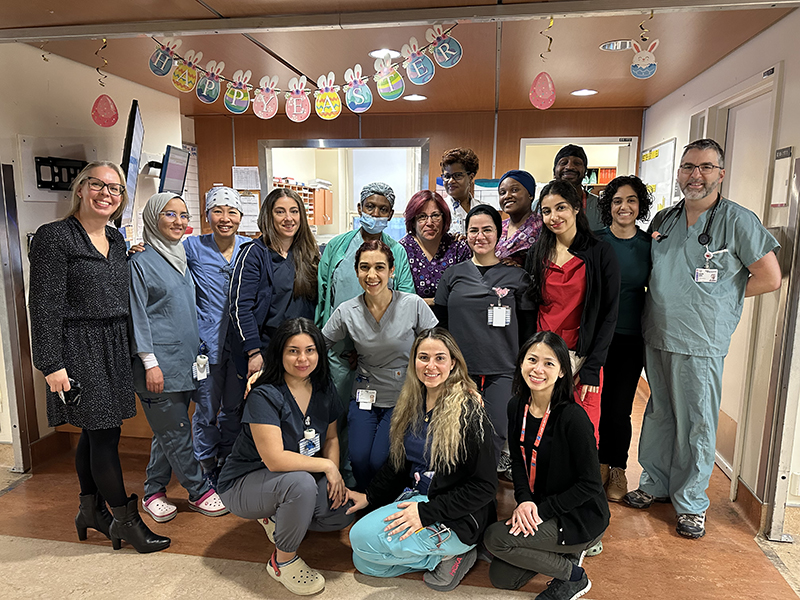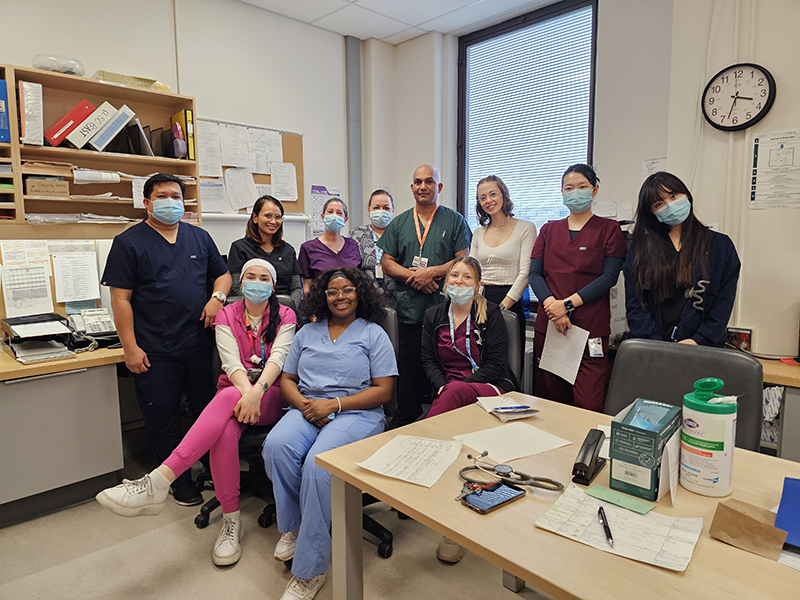Optimizing nursing care, one step at a time
When workflow changes, every minute saved becomes precious time for patients.
Congratulations to Jasmine Lee Hill, the nursing leadership teams, and all staff for completing an innovative study on optimizing care delivery. Over an 18-month period, three units participated in the project: Thoracic Surgery on the 10th floor east MGH, Trauma, Brain Injury (TBI), and Orthopedics on the 12th floor MGH, and Neurosurgery and Neurology on the third floor of The Neuro.
The study, conducted over 34 days, involved 31 participants and totaled 226 hours of observation. The objective was clear: to better understand nursing work organization and reduce the burden of non-value-added tasks, giving back 5 to 10 per cent of nurses’ time, which could then be devoted directly to patients.
The results speak for themselves. At the MGH, reorganizing supplies has sped up the assembly of enteral feeding equipment and saved over 100 minutes per month by creating admission kits. The team rated these changes 4.5 out of 5. Also at the MGH, Dyad work has been transformed. Thanks to new tools and simulations, understanding of Dyad work has increased from 40 to 100 per cent, and the perception of more targeted care has doubled. At The Neuro, restructuring the morning report saved nearly 90 minutes of nursing time each day while improving the quality and safety of care transfers.
As Jasmine Lee Hill points out, “It is essential to understand the root causes of how nurses spend their time, and why. Every minute we give back to our nurses is a minute gained for patients. These adjustments, both practical and strategic, demonstrate that better work organization directly contributes to safer, more effective, and more compassionate care.”
For more information: [email protected]




